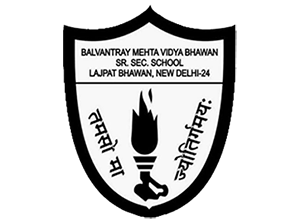CHAPTER IX
CODE OF CONDUCT FOR TEACHERS AND OTHER EMPLOYEES
122. Employees of recognized Schools to be governed by the Code of Conduct- Every employee of a recognized school, whether aided or not, shall be governed by the Code of Conduct, as specified in this Chapter, and every such employee shall be liable to the disciplinary action, specified in rule 115, for the breach of any provision of the Code of Conduct: 70 The Delhi School Education Act & Rules, 1973 Provided that in the case of an employee of an unaided minority school the penalties for the breach of any provision of the Code of Conduct shall be as may be specified in the contract of service between the management of the school and the concerned employee.
123. Code of Conduct for teachers-
(1) The Code of Conduct for the follows: – teachers of the recognized schools including unaided minority schools, shall be as: –
No teacher shall-
Knowingly or willfully neglect his duties.
Propagate through his teaching lessons or otherwise, communal or sectarian outlook, or incite or allow any student to indulge in communal or sectarian activity.
Discriminate against any student on the ground of caste, creed, language, place of origin, social and cultural background or any of them.
Indulge in, or encourage, any form of malpractice connected with examination or any other school activity.
Make any sustained neglect in correcting class-work or homework done by students.
While being present in the school, absent himself (except with the previous permission of the head of the school) from the class which is required to attend.
Remain absent from the school without leave or without the previous permission of the head of the school: Provided that where such absence without leave or without the previous permission of the head of the school is due to reasons beyond the control of the teacher, it shall not be deemed to be a breach of the Code of Conduct, if, on return to duty, the teacher has applied for and obtained, ex post facto, the necessary sanction for the leave.
Accept any job of a remunerative character from any source other than the school or give private tuition to any student or other person or engage himself in any business.
Prepare or publish any book or books, commonly known as keys, or assist, whether directly or indirectly, in their publication.
Engage himself as a selling agent or canvasser for any publishing firm or trader.
Ask for or accept (except with the previous sanction), any contribution, or otherwise associate himself with the raising of any funds or The Delhi School Education Rules, 1973 make any other collections, whether in cash or in kind, in pursuance of any object whatsoever, except subscription from the members of any association of teachers.
Enter into any monetary transactions with any student or parent; nor shall he exploit his influence for personal ends; nor shall be conduct his personal matters in such a manner that he has to incur a debt beyond his means to repay.
Accept, or permit any member of his family or any other person acting on his behalf to accept, any gift from any student, parent or any person with whom he has come into contact by virtue of his position in the school. (a) The expression ‘gift’ shall include free transport, boarding, lodging or other service or any other pecuniary advantage when provided by any person other than a near relation or personal friend having no dealings with him in connection with the school.
Note-(a) casual meal, lift or other social hospitality of a casual nature shall not be a gift. (b) On occasions, such as weddings, anniversaries, funerals or religious function when the making of a gift is in conformity with the prevailing religious or social practice, a teacher may accept gift if the value thereof does not exceed Rs. 25.00.
Practice, or incite any student to practice, casteism, communalism or untouchability.
Cause, or incite any other person to cause, any damage to school property.
Behave, or encourage or incite any student, teacher or other employee to behave, in a rowdy or disorderly manner in the school premises.
Be guilty of, or encourage, violence, or any conduct which involves moral turpitude.
Be guilty of misbehavior or cruelty towards any parent, guardian, student teacher or employee of the school; organize or attend any meeting during the school hours except where he is required, or permitted by the head of the school to do so.
Every teacher shall: –
Be punctual in attendance and in respect of his class-work and also for any other work connected with the duties assigned to him by the head of the school.
Abide by the rules and regulations of the school and also show due respect to the constituted authority.
(2) Nothing contained in sub-rule (1) shall be deemed to take away or abridge the right of a teacher,- (a) to appear at any examination to improve his qualifications; (b) to become, or to continue to be, a member of any literary, scientific or professional organization; (c) (d) to make any representation for the redressal of any bona fide grievance, subject to the condition that such representation is not made in any rude or indecorous language; *] Provided that where any teachers’ organization or association does not have any facility to hold any meeting outside the school premises, a meeting of such organization or association, for the bona fide purposes, may be held within the premises head of the but school. before or after the school-hours, with the previous permission.
(3) The breach of any condition specified in sub-rule (1) shall be deemed to a breach of the Code of Conduct.
124. Code of Conduct for other employees-
The Code of Conduct specified for teachers shall, so far as may be, apply to other employees of a recognized private school, including an unaided minority school.

